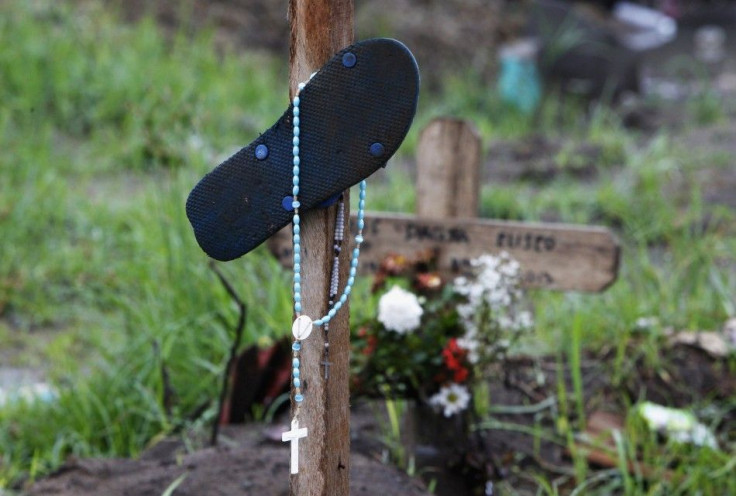22 Million People Displaced By Natural Disasters In 2013, More To Come – UN Study

Natural disasters such as hurricanes, quakes and tornadoes have displaced a whopping 22 million in at least 119 countries around the world, a report released by the Norwegian Refugee Council's Internal Displacement Monitoring Center said.
The figure was three times over than the number of people displaced by conflicts and wars around the world. The study further noted that disaster-triggered displacements had more than doubled over the last 40 years, largely because of the growth and concentration of urban populations, particularly in vulnerable countries.
Populations are all the more vulnerable to natural disasters when they flock together in places that hardly have strong and adequate infrastructure.
What's worse, the future impacts of an aggravating climate change will exacerbate the situation and further jack up the numbers in coming years, Jan Egeland, Secretary-General of the Norwegian Refugee Council, said.
Majority of those displaced came from Asia, at 19 million, earning the title displacement "hotspot" in the study.
Rather than always reactionary to the events, Jan Eliasson, UN Deputy Secretary-General, said it is now more than ever than nations band together to implement early warning systems and emergency evacuations since the world's disaster events will surely increase and intensify in coming years.
"The numbers of people who need humanitarian assistance, and the cost of helping them, are skyrocketing. We need to shift our focus to prevention and preparedness in close cooperation with national partners," he said.
While developing countries bear the brunt of the effects of the displacement, the report pointed out that wealthy nations were also affected.
Typhoon Haiyan, 2013's strongest typhoon and one of that year's worst natural disasters, displaced 4.1 million people in 270 towns and cities in the Philippines in November, which was a million more than in Africa, the Americas, Europe and Oceania combined.
The report said that the global population since the 1970s has grown 96 per cent, with urban populations jumping 187 per cent.
Urban populations in developing countries have expanded 326 per cent.
"Urbanization has happened in a bad way, in very disaster-prone areas," Egeland said. "The slums of the big cities, of growing cities become traps for people who are exposed to natural disasters."





















